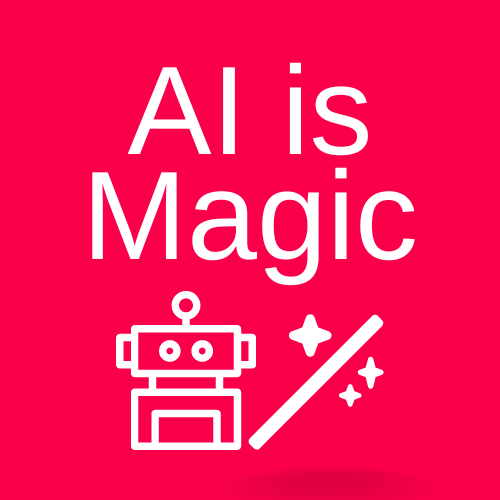
Artificial intelligence (AI) has rapidly evolved from being a speculative idea in science fiction to an integral part of modern life. An increasingly popular viewpoint is the notion that “AI is magic,” a phrase conveying the wondrous capabilities of these systems. Yet, in dissecting this metaphor, we delve into an underlying question: does the “magic” of AI bring us closer to or further from our own humanity?
For starters, the phrase “AI is magic” captures the immense complexity and mysteriousness of AI systems. Much like magic, AI often achieves feats that are difficult for the average person to comprehend. From self-driving cars and personalized recommendation algorithms to advanced medical diagnostics, these achievements often seem miraculous. However, it’s crucial to remember that behind every AI system is human effort and ingenuity; they are the outcome of a collaborative endeavor involving computer scientists, engineers, and many others.
This human involvement underscores the essential humanity inherent in AI. The creation, design, and implementation of AI systems are fundamentally human endeavors. Every algorithm, every line of code, is an expression of human thought and creativity. Thus, while the outcomes may seem magical, they are actually the product of human capability, intelligence, and ingenuity.
However, there’s a contrasting perspective that suggests AI, especially when it’s viewed as magical, can also distance us from our own humanity. This is because, in attributing near-miraculous abilities to AI, we may unintentionally devalue or overlook human skills and abilities. While AI excels in pattern recognition and data processing, it cannot replicate the nuanced understanding, empathy, and creativity that characterize human intelligence.
Moreover, the “AI is magic” metaphor might foster a sense of disempowerment among individuals who do not fully grasp how these systems work. This can lead to a form of technological alienation, where people feel detached from technology, perceiving it as an incomprehensible and uncontrollable force. This alienation can further deepen the divide between tech-savvy individuals and those less comfortable with technology, exacerbating social inequalities.
In order to bridge this divide, it’s crucial to demystify AI. Educating the broader public about how AI works, its capabilities, and its limitations can help dispel the notion of AI as an arcane, magical force. This education should include a clear understanding that AI is a tool created and controlled by humans, one that can be used for good or ill depending on our choices.
Additionally, we must also strive to humanize AI, focusing on its potential to augment and enhance human capabilities rather than replace them. Emphasizing the collaborative potential between humans and AI could help foster a more inclusive and empowering view of this technology. The goal is not to compete with AI, but to work alongside it, leveraging its capabilities to further human progress.
Ultimately, while the phrase “AI is magic” captures the awe-inspiring nature of this technology, it’s essential to remember that AI is not separate from us—it is a product of human innovation. It reflects our creativity, our ambitions, and our flaws. In this sense, the true magic lies not in the AI itself, but in our human capacity to imagine, create, and continuously strive for a better future.
So, is AI magic? Perhaps, in the sense that it embodies the remarkable capacity of human imagination and creativity. But the real “magic” lies within us, in our shared ability to innovate, learn, and grow. As we continue to develop and interact with AI, it’s crucial that we keep this human-centered perspective at the forefront. After all, in the realm of AI, humanity is the real magician.
